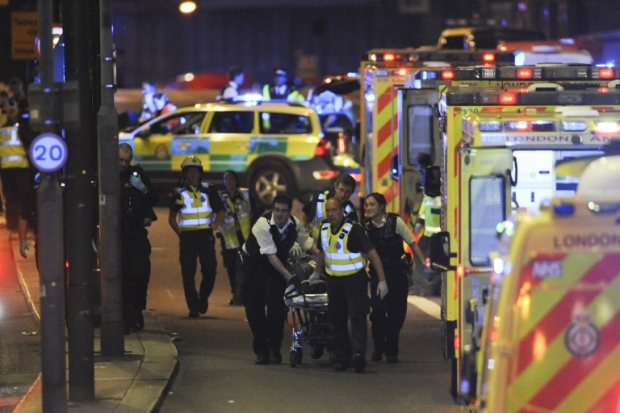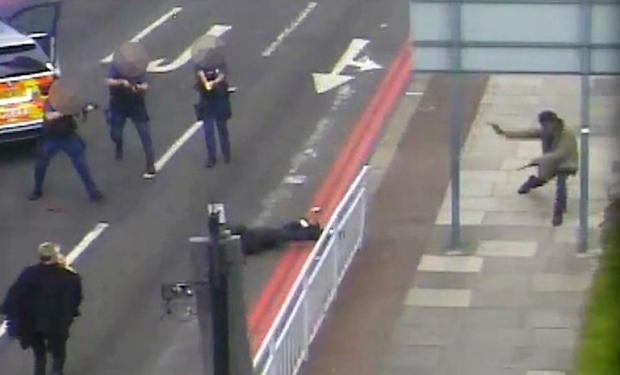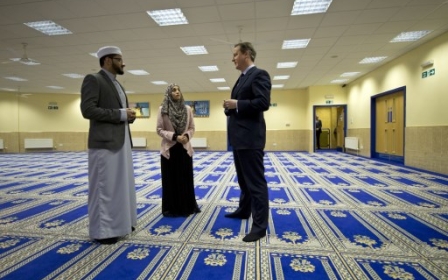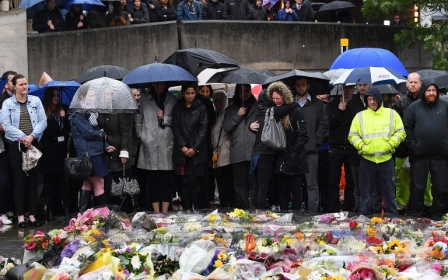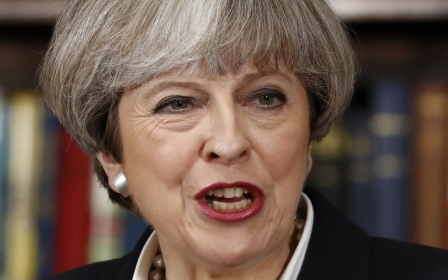London Bridge attack: This was not for Allah
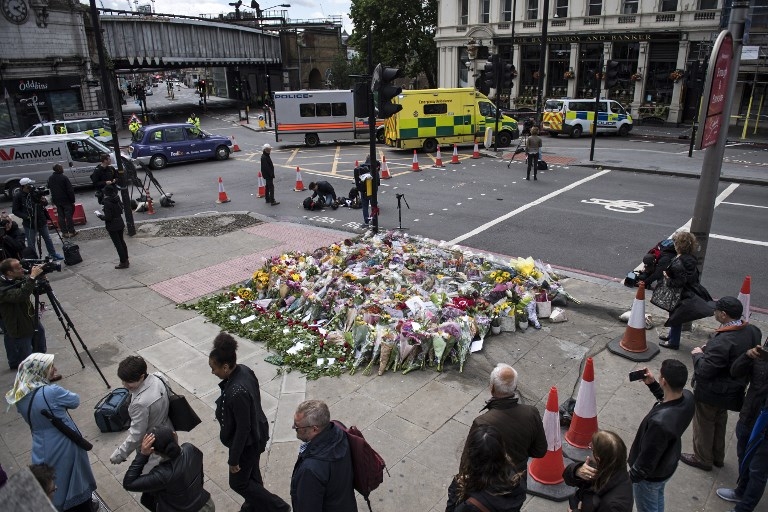
A witness account from the scene of one of the attacks in London on Saturday evening - the third attack in as many months in Britain - heard one of them proclaim, “this is for Allah”, before getting out of a vehicle to begin a killing spree that left eight dead and at least 48 injured.
At the time of writing, authorities are trying to gather intelligence and evidence following the attack, which also extended to Borough Market, a few minutes from London Bridge on the south side of the Thames.
Make no mistake: these, like other heinous attacks, are not for Allah. Instead, they are a result of misplaced hatred
I am a south Londoner, so this atrocity is close to home. However, while saying this, it must also be stated that every attack in Britain since 7/7 has been on home soil.
Many British Muslims, who unashamedly possess a sense of pride and belonging, will share the sentiment of Britain being home. Extremists - whether religious, far right or otherwise - neither like, nor want this. They would rather we have no sense of belonging or affinity to our place of birth, upbringing and citizenship.
Religious extremists prefer that we experience the type of fear and insecurity witnessed among the thousands of refugees fleeing war-torn countries or inhabitants being killed in those societies. Their rather simplistic and regressive strategy may succeed for a short, momentary phase during and shortly after terrorist attacks.
Britain is still recovering from the outrageous attacks of Westminster and Manchester. The latter attack was even more reprehensible for the targeting, killing and wounding of innocent children with the youngest casualty only eight years old.
This was also an attack on religious values
Saturday night’s equally atrocious attack assumed a slightly different degree of malevolence as a result of its timing. Muslims around the world are currently observing the holy month of Ramadan, fasting during long daylight hours and standing for extra devotional prayers at night.
Did the three attackers complete their fasts and enjoy the solidarity and camaraderie of colleagues when sharing a meal? Did they participate in the final evening prayers?
In Britain, Ramadan has become a unique experience for both Muslims and non-Muslims alike. Londoners gather for social and culinary events following the final prayers of the evening. Beforehand, they would have completed the day’s fast with a small amount of food in order to adequately prepare for the ensuing night prayers.
Both Muslims and non-Muslims will have been frequenting restaurants last night, enjoying the ambience of their environment. What about the three attackers? Did they complete their fasts; enjoy the solidarity and camaraderie of colleagues when sharing a meal? Did they participate in the final evening prayers?
If so, they clearly misunderstood the essence of what this month symbolises for 1.6 billion Muslims. As security and intelligence agencies attempt to piece together events leading up to this attack, it is unlikely we will ever know precisely what compelled these individuals to embark on a campaign of terror.
However, what we do know is that their acts have no justifiable basis in Islam - whatsoever.
Fusilier Lee Rigby’s murder: A precursor for the type of attacks today?
Previous terrorist attacks are fast disappearing in the annals of the not-too-distant history as we attempt to keep abreast of the most recent ones. This is disturbing because previous concerns and warnings regarding the changing nature of attacks have been ignored.
The aftermath of the Westminster attacks provided sufficient graphic detail illustrating the level of depravity intended by these acts – the body of a dead woman under a bus, another floating in the Thames, the streets covered in blood among injured and strewn bodies.
These scenes were reminiscent of apocalyptic movies, not modern 21st century cities.
Reclaiming the religion, starting with terminology
As Muslims, we will continue to address and reject extremists and their terroristic resolve to wreak havoc due to their hatred for our collective way of life.
Their resentment also extends to fellow Muslims who they claim to represent. One only has to recount their disregard for Muslim lives and the subsequent death toll at their hands in the Middle East, North Africa and elsewhere to debunk this myth. Their misrepresentation of Islam will also continue to be challenged and rejected.
The use by extremists of the same terminology or language does not automatically equate them to the majority of Muslims experiences and beliefs, or us to theirs
However, it must be made unequivocally clear that their use of the same terminology or language does not automatically equate them to the majority of Muslims' experiences and beliefs, or us to theirs.
Make no mistake; these, like other heinous attacks, are not for Allah. Instead, they are a result of misplaced hatred and contradict the religious injunction, adhered to by the majority of Muslims globally, that states:
‘O you who believe! Stand out firmly for Allah as just witnesses and let not the enmity and hatred of others lead you to injustice. Be just: that is nearer to piety…’ ( English rendition of The Quran; Chapter 5, verse 6)
- Dr Abdul Haqq Baker is the former Chairman of Brixton Mosque and author of Extremists in Our Midst: Confronting Terror.
The views expressed in this article belong to the author and do not necessarily reflect the editorial policy of Middle East Eye.
Photo: Flowers are pictured at the south-side of London Bridge, opposite the Barrowboy and Banker pub, and close the Borough Market in London on 6 June 2017, placed in memory of the victims of the June 3 terror attacks. (AFP)
New MEE newsletter: Jerusalem Dispatch
Sign up to get the latest insights and analysis on Israel-Palestine, alongside Turkey Unpacked and other MEE newsletters
Middle East Eye delivers independent and unrivalled coverage and analysis of the Middle East, North Africa and beyond. To learn more about republishing this content and the associated fees, please fill out this form. More about MEE can be found here.



